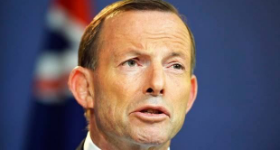Over the past month, Australian navy and customs officers have been accused of towing or turning back boats carrying Indonesian asylum-seekers. Australian Prime Minister, Tony Abbott, has reported little about Australia’s asylum-seeker policies, fearing that exposing such information may create a tactical advantage in a wartime scenario. The United Nations High Commissioner for Refugees (UNHCR) has previously expressed concerns over how Australian policies of border protection might violate international responsibilities. These new reports of towing and turning back Indonesian asylum-seekers now raises questions surrounding Australia’s adherence to international conventions and laws protecting refugees.

Australia is just one of 144 states to have ratified the 1951 Convention relating to the Status of Refugees (Convention) and the 1967 Protocol amendment. In January of 1951, the United Nations General Assembly created the Office of the UNHCR to provide “international protection” to refugees. The Convention became effective in 1954 and played an important role in the UNHCR’s international refugee policies and protections.
The Convention establishes several obligations that signatory countries must follow in order to provide appropriate protection and potential solutions for refugees. One such obligation is “non-refoulement,” a concept stating that “no refugee should be returned in any manner whatsoever to any country where he or she would be at risk of persecution.” Under this principle, countries party to this Convention should not return refugees to any country where they may face persecution, whether it is their home country or not. Furthermore, the Convention provides refugees an exemption from penalties for illegal immigration and provides them with protection from expulsion from the country.
While Australian government officials have remained quiet on border protection policies, these reports and accusations of towing and turning back boats questions whether the Australian government is adhering to its obligations under the Convention. Prime Minister Abbott and his staff maintain silence surrounding the details and/or accuracies of these accusations. In response to questions surrounding the nation’s border control policies, Abbott stated “I’m pleased to say it is now several weeks since we’ve had a boat, and the less we talk about operational details on the water the better when it comes to stopping the boats.”
In addition to reports of towing and turning back boats, the Australian government has also been accused of purchasing lifeboats to be used in ushering asylum-seekers back to Indonesia. Australian Operation Sovereign Borders commander Angus Campbell has admitted to the purchase of lifeboats, but mimicking Prime Minister Abbott’s policy of secrecy over government operations, has not stated the intended purpose for the devices.
Even Indonesian officials are angered by Prime Minister Abbott’s failure to open up about the specifics of the country’s border protection policies. Although Abbott has denied some of these allegations, he has failed to make reports on the details of the Australian immigration control policies. Mark Dreyfus, active immigration spokesman for the Australian Labor Party, stated, “I’m not going to speculate because it’s for the government to explain the circumstances. It’s for the government to reassure Australians that everything that’s been done does comply with international law, that everything that’s been done complies with our obligations under the refugees convention.” Until the Australian government reveals the truth about their border protection operations, the rest of the world will continue to question the legality of their actions.
Stacy Harper is a 3L at Denver Law and Marketing Editor for the Denver Journal of International Law and Policy.

